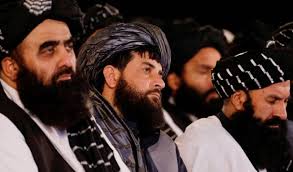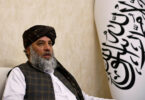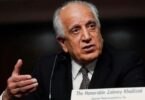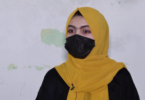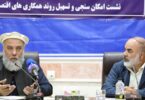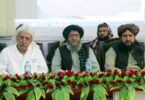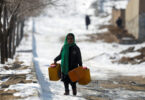Monitoring Desk
KABUL: The Afghan Taliban, grappling with internal divisions, faces a choice between hard-line and moderate approaches amidst mounting economic and security challenges in Afghanistan. Recent messages from top Taliban figures during Eid-ul-Fitr underscored this internal rift.
Supreme Leader Hibatullah Akhundzada strongly defended the Taliban’s adherence to self-imposed Islamic laws, dismissing international criticism. In contrast, Afghan Interior Minister Sirajuddin Haqqani urged Taliban members to exercise restraint and avoid actions that divide the Afghan populace.
Analysts suggest that Haqqani aims to portray a softer image to win broader Afghan support and seek international backing, recognizing the Taliban’s harsh rule. However, the Taliban’s stringent policies, notably regarding women’s rights, remain a significant hurdle in international negotiations.
The Taliban’s ban on women’s education beyond the sixth grade, along with corporal punishment and public executions, has triggered widespread condemnation and worsened Afghanistan’s humanitarian crisis, including drought and homelessness.
While some moderate Taliban members advocate for women’s education, they lack significant influence within the group. Journalist Ahmad Rasheed notes that Supreme Leader Akhundzada’s unwavering stance has left many questions unanswered.
Sirajuddin Haqqani’s previous criticisms of Taliban leadership highlight internal dissent. However, the Taliban’s strict adherence to Sharia law has hindered international recognition, posing challenges for their legitimacy.

